pedagogue
noun
Welcome to the pedablog - a repository of vocal instruction miscellany! Please enjoy.
Voice Lessons for Children - is it really worth it?
Friday, August 11, 2023 by Alix Evans | children
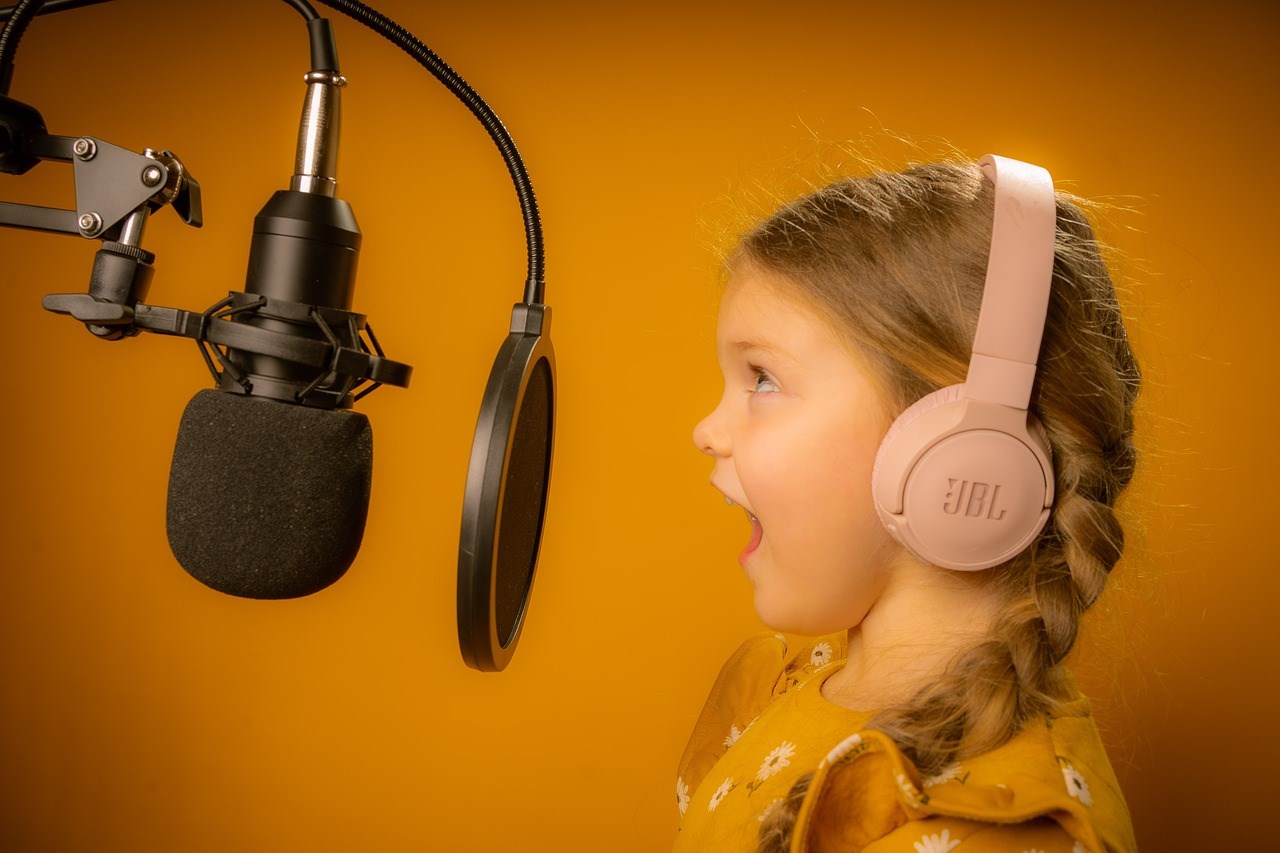 Image by Lee Murray from Pixabay
Image by Lee Murray from PixabaySome some parents, and even voice teachers, believe that there's not much point in teaching voice lessons to a child under the age of 12. Fortunately, this is now a fairly antiquated idea among voice teachers, and both teachers and parents acknowledge the benefits of singing instruction for young children, both in the areas of vocal health and in the extremely strong foundation in music literacy that vocal training in particular offers.
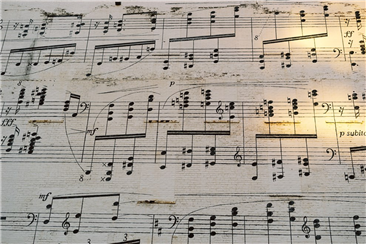 Image by Weston M. on Unsplash
Image by Weston M. on UnsplashMany parents choose to enroll their children in piano lessons at a young age, on the grounds that keyboarding skills are an excellent way to teach music theory that will be applicable to any instrument the child chooses later in life. This is absolutely true, and piano instruction is a great choice for young children! But vocal training builds some fundamental musical skills even on top of those offered by piano.
Like piano, learning to sing can include basic music theory like reading music, learning about chords, voice leading, and the circle of 5ths. In addition to all of this, though, vocal training includes the most rigorous (and fun!) ear training of any instrument.
 Image by Greg Simon
Image by Greg SimonEar Training
What's ear training? Ear training is teaching the ear to recognize what it's hearing, and to "hear" a note or a phrase of music in the mind before you've heard it with your actual ears. Ear training is what allows singers to sing on key, it's what allows instrumentalists to know when they've hit a wrong note or need to tune their instruments, and it's what allows composers to write new music that sounds the way they want it to. It's also what allows choral singers to find their note in the middle of a chord, and what allows the best-trained singers to sing a line of music by sight, even though they've never heard it before. Unlike on a piano, where you hit the right key and the right note comes out, singers need to know what the music is going to sound like before we hear it. This is an important skill for any musician - that's why instrumentalist music majors have to take ear training classes in college. Vocal training is hands-down the best way to train your ear, and the younger you start, the easier (and more low-pressure, and more silly and fun) it is!
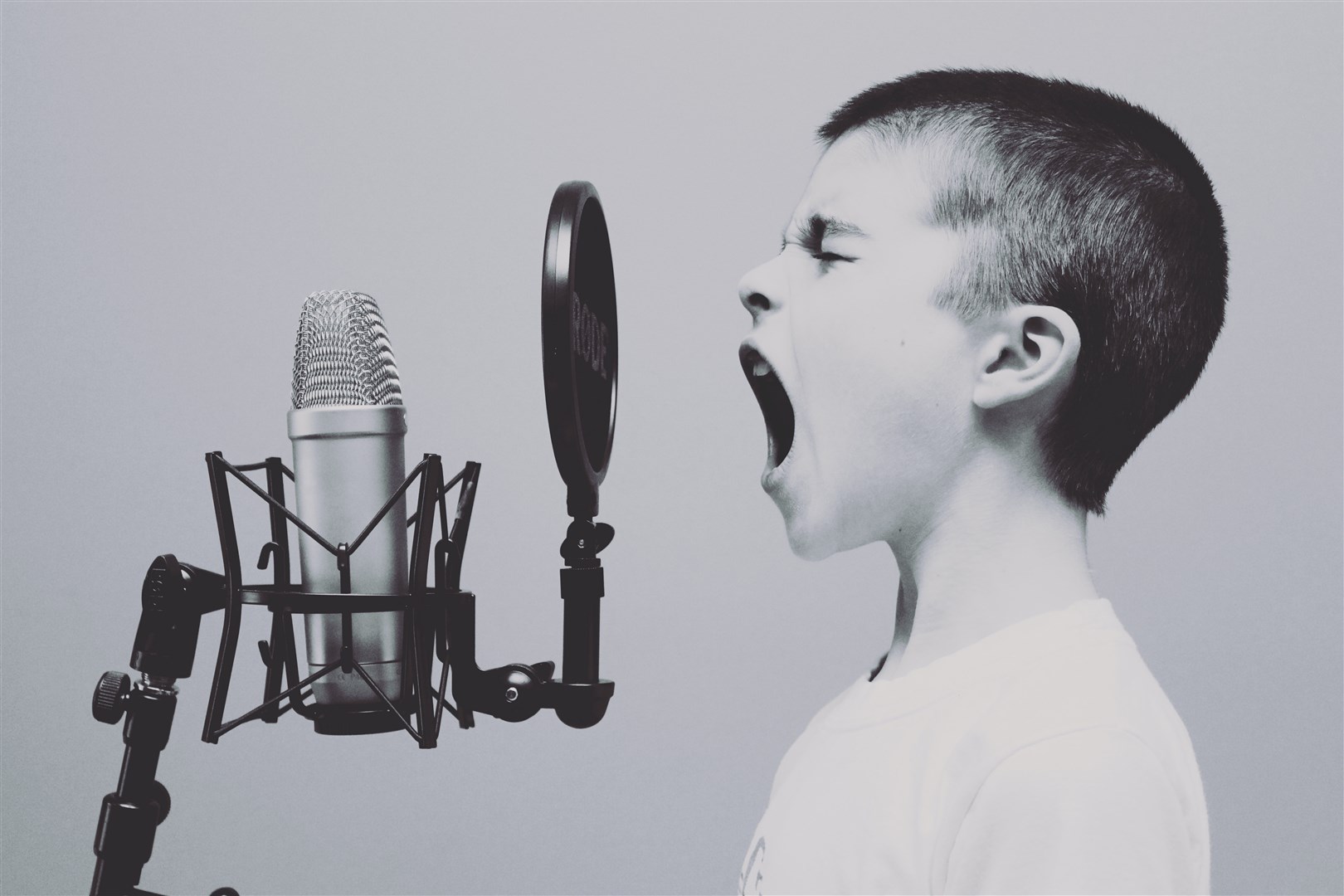 Image by Jason Rosewell on Unsplash
Image by Jason Rosewell on UnsplashVocal Health
Because of the way the larynx develops, a child's larynx isn't able to execute the finer points of bel canto or belting technique until around puberty. In the past, this has been used as grounds to deny vocal training to younger children, and even to argue that it's harmful. It can indeed be harmful to teach a child whose larynx isn't ready to sing like an adult opera or Broadway performer - this can cause actual vocal damage. But vocal damage can also be caused by a child trying to imitate adults who they hear on the radio on their own.
A skilled voice teacher will be able to guide a child to a healthy vocal production, and recognize when the child is physically ready for more adult techniques. In voice lessons, children can learn to feel when they're straining from the throat, or when they're comfortably relaxed. And beyond that, childhood is a perfect time to instill the most foundational building blocks of any good vocal technique - posture and abdominal breathing. These building blocks not only set children up for success when they're ready for more advanced technique, they also set children up for success as instrumentalists and even just as human beings with healthy bodies! Good posture will support their spinal health throughout their lives, and abdominal breathing has been scientifically proven to help control symptoms of anxiety.
So in short, voice lessons for young children are not just safe and productive, they provide one of the absolute best foundations in music literacy, ear training, and healthy techniques available. These foundations will set children up for success in further vocal study, or in whatever they choose to pursue as they get older.
If you're interested in voice lessons for your child, check out my group classes starting this September, or click here to sign up for private voice lessons. Check back soon for blog posts on what lessons for children look like, and how to determine whether group or private lessons are the best fit for your child!
What to expect at a baroque opera
Sunday, February 5, 2023 by Alix Evans | performance
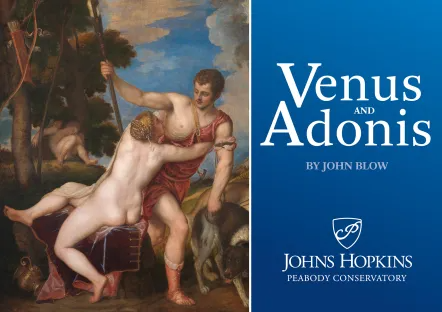
On Feb 17, 18, and 19, I'll be performing in Peabody Opera's production of John Blow's "Venus and Adonis." This opera dates to the baroque era, and as such is a little bit different than what people typically think about when they think of opera. So what's different and special about this opera? Lots of stuff!
First and foremost, this is a student opera - and in fact many operas during the baroque era were written to be performed at schools! This production features a mix of graduate and undergraduate voice students and instrumentalists.
If you come on Friday or Saturday, you'll see one undergraduate student in particular performing the role of a very chaotic neutral Cupid ("But mother, teach me to destroy all them as scorn your wanton boy!"). This student is a countertenor, or male soprano. Contrary to popular myth, women did perform on the operatic stage during the baroque era, but the sound of male sopranos was extremely popular. Stay tuned for another post about the history of male sopranos in the future - it's its own big, fascinating, and grisly topic. (But there's nothing grisly about this particular countertenor - he's lovely!)
This opera is fairly short, with no intermission, and has instrumental dance numbers between the scenes, which don't necessarily relate to the action on the stage. This was quite common during the baroque era.
The singers are accompanied by a small ensemble playing historical instruments. You'll notice all of the strings are gut-strung, the violins and violas lack chin rests and the cello lacks an end pin. Our music director Adam Pearl will be conducting from the harpsichord. And all of this will happen on stage with the actors. During the baroque era, the orchestra had not yet descended into an orchestral pit, so you'll get a good look at these cool historical instruments!
I will be singing alto in the chorus, and performing the role of "huntsman," singing a rousing solo about a "mighty boar" who's terrorizing a bunch of good doggos (with very interesting names!). Tickets are on sale now!
In-person lessons are now available!
Sunday, January 22, 2023 by Alix Evans | announcements
Big news! At long last, I have finished revamping the basement into my office and music studio, which means I'm now able to offer in-person lessons to my students who are local to the DC area! Virtual lessons will remain an option for anyone at any time, but if you'd like to switch to in-person lessons, please let me know!
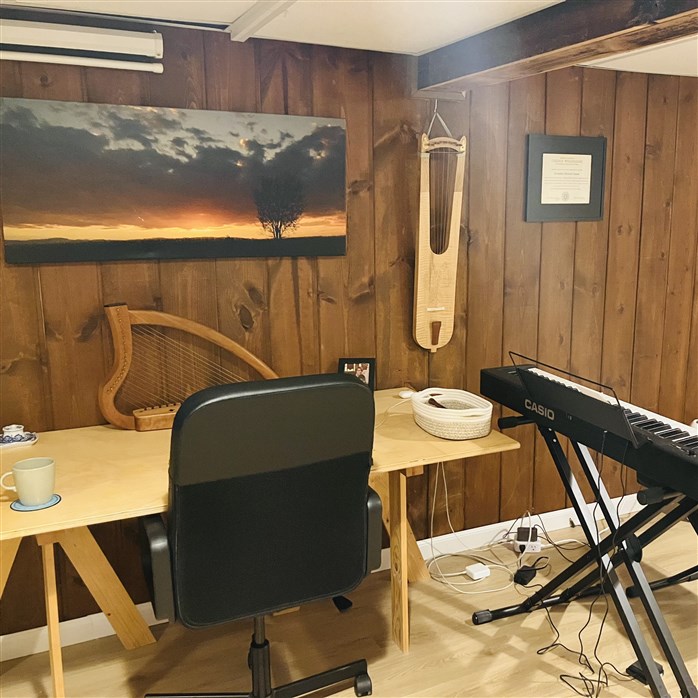
Here are some things to know about in-person lessons:
My studio is located in the basement of my home, so depending on when your lesson is, you may see my husband and daughter around the house - but not in your lesson of course! We do have two very friendly cats who you very well may see during your lesson, though, so be mindful of allergies.
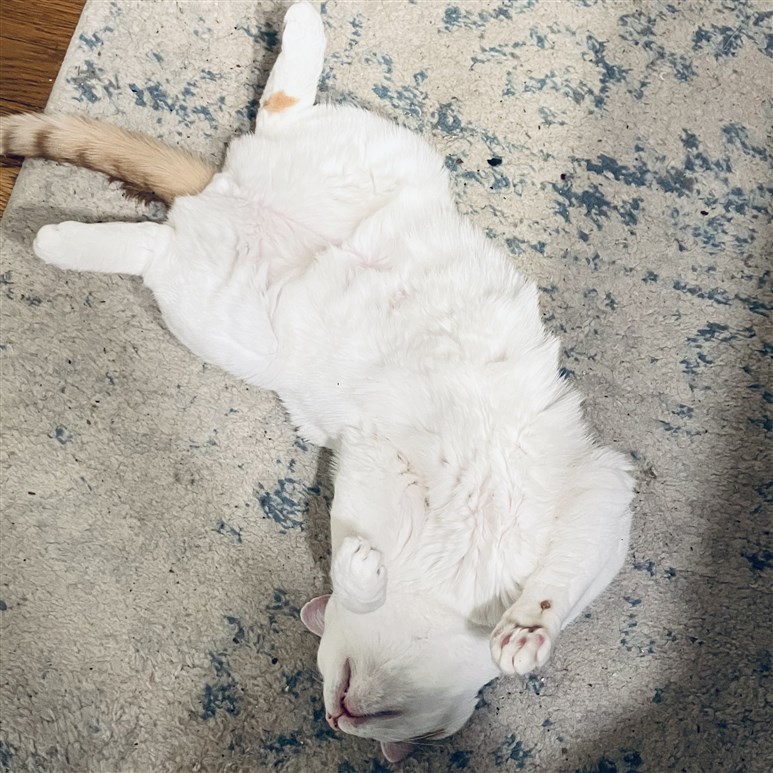 Ozzy the Studio Cat
Ozzy the Studio CatParents are welcome and even encouraged to sit in on their children's lessons, and I've got a couch and a cup of tea with your name on them! Parents are not required to sit in, but parental engagement in music lessons usually leads to better student outcomes, and certainly helps with communication!
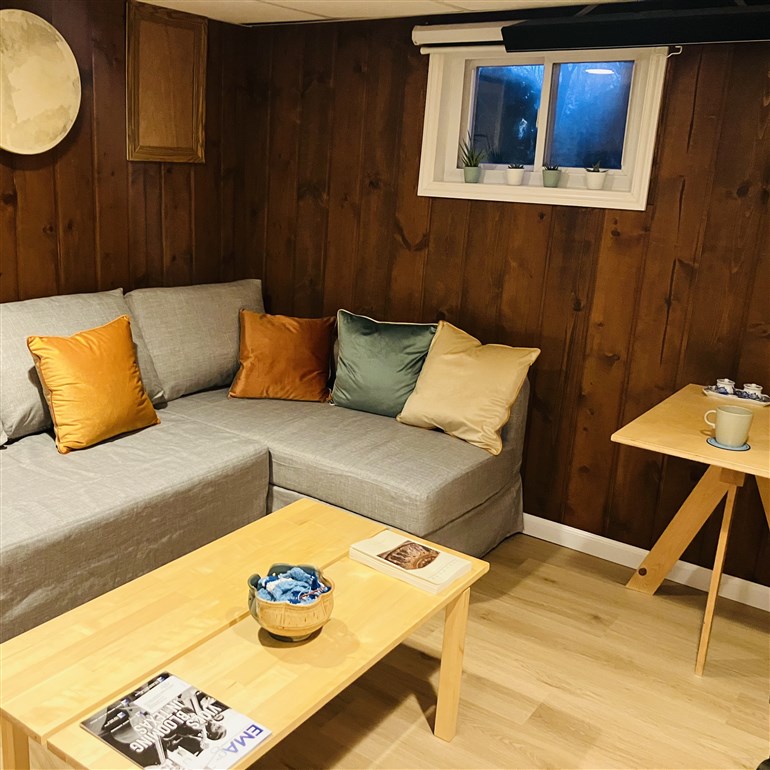 Come read some deeply geeky music journals!
Come read some deeply geeky music journals!Respiratory health is vocal health! It's hard to sing through a cough, and harmful to sing through a sore throat. For that reason, as singers, it's important that we all try our best to keep ourselves and each other healthy! To that end, here are the measures I'm taking, and asking students to take.
- Everyone attending an in-person lesson must be up to date on vaccines and boosters for COVID-19 and flu.
- I will have an air purifier running in my studio during lessons. I also have two windows that can be open on request during good weather.
- Masks are currently not required, but I'm happy to mask up at the request of a student or family. I may occasionally ask students and families to mask in advance of particularly important performances (for instance, my masters recital in April).
- Students experiencing any respiratory symptoms should not attend in-person, but should contact me about rescheduling or switching temporarily to virtual.
- If a member of a student's household tests positive for COVID, please contact me about switching temporarily to virtual.
- If I'm experiencing respiratory symptoms, or if I or anyone in my family tests positive for COVID, I will give you the option to reschedule, cancel, or possibly switch to virtual.
